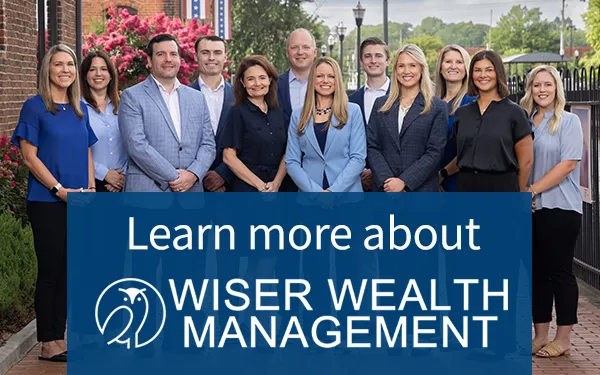
SPACs: Special Purpose Acquisition Companies
On this week’s episode of the Wiser Roundtable podcast, the team discusses a craze that has taken Wall Street by storm recently. SPACs are special purpose acquisition companies, essentially shell companies that raise money from investors through stock-market listings.
Listen on Apple Podcasts or watch on YouTube:
SUMMARY:
SPACs are the topic of today’s podcast. SPACs are special purpose acquisition companies, essentially a shell company that raises money from investors through stock-market listings. They are also known as a “blank check” company. These SPACs are shell companies that have no assets other than cash from investors.
According to the U.S. Securities and Exchange Commission (SEC), a SPAC is created specifically to pool funds in order to finance a merger or acquisition opportunity within a set timeframe. SPACs raised a record $83 billion in 2020, a period sometimes referred to as the “blank check boom.”
Because a SPAC is registered with the SEC and a publicly traded company, the general public can buy its shares before the merger or acquisition takes place. For this reason, they’ve been referred to as the ‘poor man’s private equity funds.’
There are also SPAC index funds for retail investors to choose from. The team discusses this as an investment option.
Finally, the team has a special bonus round about NFTs (non-fungible tokens). An NFT is a new type of digital asset. Ownership is recorded on a blockchain — a digital ledger similar to the networks that underpin bitcoin and other cryptocurrencies. Each NFT is unique and can’t be duplicated.
TIMESTAMPS:
0:00 Introduction
1:58 What are SPACs?
4:50 Who manages them?
6:00 What is de-SPACing?
10:20 Where is the money coming from?
13:30 What does the investor receive?
14:30 ETFs
18:30 Not all interests are equally rewarded
21:20 NFTs
LINKS:
Learn more about Casey Smith and connect with him on Twitter.
Learn more about Brad Lyons.
Learn more about Matthews Barnett.
CONNECT:
Twitter, Instagram, Facebook, LinkedIn, and YouTube.
Learn more about A Wiser Retirement podcast and access previous episodes.
Share This Story, Choose Your Platform!
Wiser Wealth Management, Inc (“Wiser Wealth”) is a registered investment adviser with the U.S. Securities and Exchange Commission (SEC). As a registered investment adviser, Wiser Wealth and its employees are subject to various rules, filings, and requirements. You can visit the SEC’s website here to obtain further information on our firm or investment adviser’s registration.
Wiser Wealth’s website provides general information regarding our business along with access to additional investment related information, various financial calculators, and external / third party links. Material presented on this website is believed to be from reliable sources and is meant for informational purposes only. Wiser Wealth does not endorse or accept responsibility for the content of any third-party website and is not affiliated with any third-party website or social media page. Wiser Wealth does not expressly or implicitly adopt or endorse any of the expressions, opinions or content posted by third party websites or on social media pages. While Wiser Wealth uses reasonable efforts to obtain information from sources it believes to be reliable, we make no representation that the information or opinions contained in our publications are accurate, reliable, or complete.
To the extent that you utilize any financial calculators or links in our website, you acknowledge and understand that the information provided to you should not be construed as personal investment advice from Wiser Wealth or any of its investment professionals. Advice provided by Wiser Wealth is given only within the context of our contractual agreement with the client. Wiser Wealth does not offer legal, accounting or tax advice. Consult your own attorney, accountant, and other professionals for these services.






